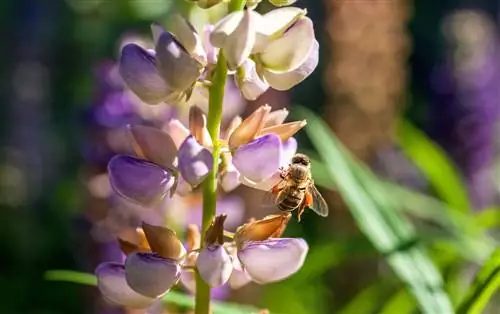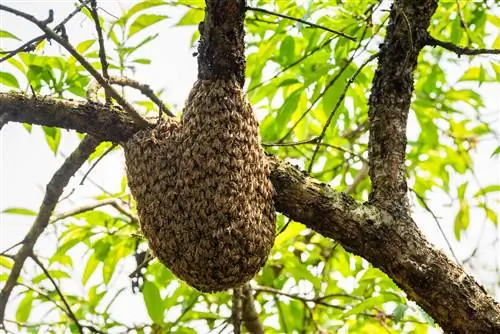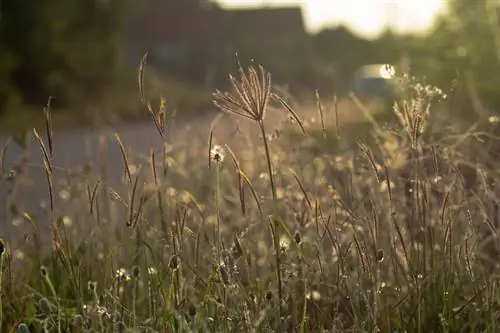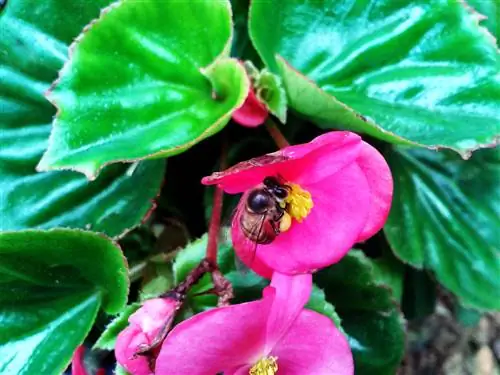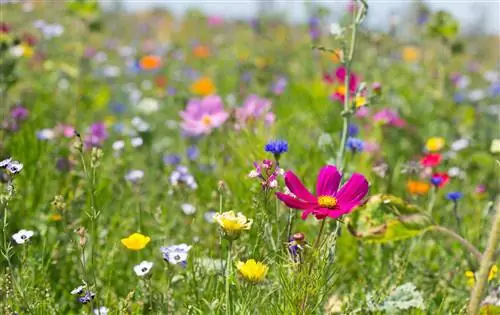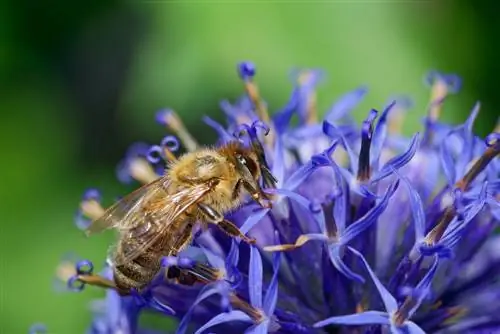- Author admin leonars@hobbygardeners.com.
- Public 2023-12-16 16:46.
- Last modified 2025-01-23 11:22.
Bee populations have been declining drastically for years, which is mainly due to modern agriculture. By cultivating bee-friendly plants in our private gardens, we can help endangered flying insects survive. Lupins (Lupinus) are a great source of food for bees.
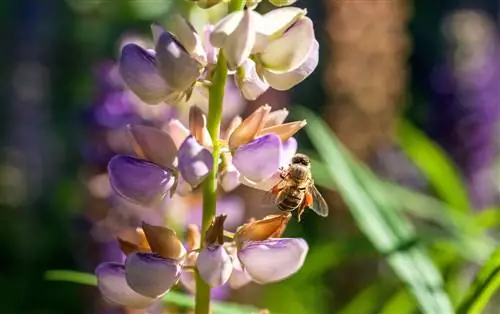
Why are lupins good for bees?
Lupins are good pasture for bees because they provide nectar and pollen and thus support the bees in finding food and caring for the brood. Pea bees, Megachile circumcincta, garden woolly bees and Osmia aurulenta are particularly frequent visitors to lupines.
What benefits do lupins have for bees?
Lupins provide bees with bothnectar and pollen. Accordingly, they serve as a food source for wild bees, including bumblebees, which makes the butterflies agood bee pasture.
Incidentally, lupins also have advantages for you: Lupinus species bloom beautifully in different colors such as pink, violet, red, orange or yellow and are a realeye-catcher in the garden. In addition, they can be used for green manure.
How do bees use lupins?
Bees use lupinsas a source of food and to provide for their brood They use their proboscis to suck the nectar out of the flowers. During their visit they also pick up pollen, i.e. pollen. They first mix this with their saliva and then store it in the so-called pollen panties on their hind legs. Fully loaded, the bees fly to the nest, where they provide their brood with the lupine treasures they have collected.
Which bees primarily fly to lupins?
It is mainly thesefour species of bees that like to fly to lupins to collect nectar and pollen:
- Pea Mortar Bee (Megachile ericetorum)
- Megachile circumcincta
- Garden wool bee (Anthidium manicatum)
- Osmia aurulenta
AlsoBumblebees (Bombus) love lupins.
Tip
Creating a paradise for bees with lupins and other plants
To make your garden attractive to bees, you should cultivate other pollen and nectar plants in addition to lupins, such as: - Foxglove species (Digitalis grandiflora, Digitalis purpurea) - Ziest species (Stachys officinalis, Stachys byzantina)- Noble germander (Teucrium chamaedrys)- Clary sage (Salvia sclarea)- Small-flowered mountain mint (Clinopodium nepeta)- Motherwort (Leonurus cardiaca)- Lemon balm (Melissa officinalis)

